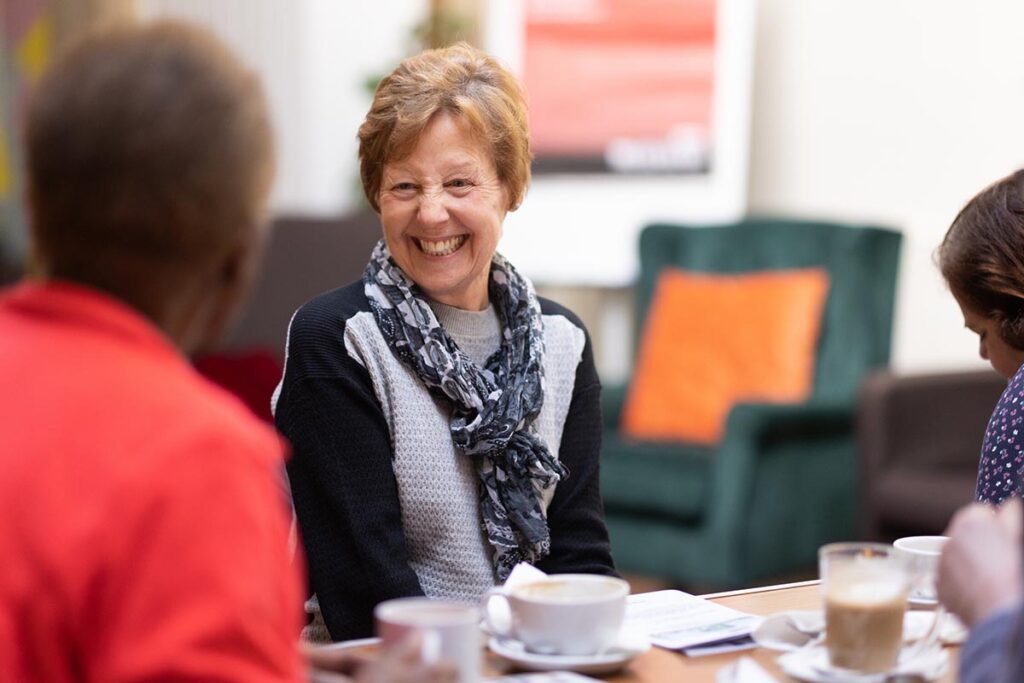
We like to keep a look out for articles, information and events that we think our members will find interesting, and this article written by the Centre for Ageing Better and first published on their website in December 2024, is one we think you’ll enjoy.
As 2024 draws to a close, we turn our attention to the new year and the good intentions for 2025.
But rather than write our own resolutions, we thought we’d help some key public figures with theirs which could make next year more age-friendly.
It is said that the ancient Babylonians were the first people to make New Year’s resolutions, some 4,000 years ago.
These resolutions, made in mid-March when their crops were planted, were promises to their gods to pay their debts and return any objects they had borrowed. A similar practice occurred in ancient Rome at the time of Julius Caesar, making promises of good conduct for the coming year.
Fast forward a few thousand years and we’re still making them. Though surveys have indicated that while around half of people make resolutions at New Year’s, fewer than one in ten actually keep them. As 2025 appears on the horizon, at Ageing Better we have drawn up a wishlist of New Year resolutions we would love prominent figures in public life to draw upon in order to make the world a more age-friendly place.
Prime Minister:
We would love Sir Keir Starmer to announce in 2025 that he will be creating an independent commissioner to champion the rights of older people and ensure policymaking considers the needs of England’s ageing population. We would love the Prime Minister to recognise that we need a Commissioner for Older People and Ageing in England to ensure there is parity in England with Wales and Northern Ireland and also to mirror the existing commissioner protecting children’s rights.
We would also love the PM to make a resolution to ensure that all new homes are built to a higher standard of accessibility in 2025 and beyond. At the current rate of building, it would take 44 years to build sufficient homes to meet the existing needs of 1.8 million people in England who currently need an accessible or adaptable home. Raising the standard of accessibility has the potential to change millions of lives.
Council Leader:
We would love council leaders to commit to creating an Age-friendly Community on their doorstep that enables people to age well and live a good later life. We hope that our council leader will resolve to creating somewhere where people can stay living in their homes, participate in the activities they value, and contribute to their communities, for as long as possible. We would hope council leaders will appoint a councillor with a specific remit to champion this issue. Of course, with over 85 places across the country already committed to making their community a better place to age in, covering 29 million people, the council leader may have already taken this step.
Mayors:
We hope that regional mayors will use the existing powers at their disposal, and the additional opportunities that further devolution will give them, to further the age-friendly agenda and make sure that ageing well remains high on their list of priorities for the year.
Several Combined Authorities have great potential, through their economic inactivity ‘trailblazer’ plans, to create new opportunities and break down barriers for people in their 50s and 60s. With wide-ranging powers, we would also hope regional mayors will show real commitment in 2025 to ensure transport is accessible, to reduce health inequalities, improve the condition of housing and ensure communities work for their growing ageing population.
Company CEO:
We would like our company boss to commit to signing our Age-friendly Employer Pledge. Doing so would show that they recognise the importance and value of older workers, affirm a commitment to improving work for people in their 50s and 60s (and beyond) and a willingness to take action to help them flourish in a multigenerational workforce. Of course with more than 400 employers, already signing the pledge, the company CEO might have already achieved their resolution.
Newspaper Editor:
It would be great if our newspaper editor resolved to end ageist headlines in their publication and instead instruct their reporters to only make references to an individual’s age when appropriate in stories relating to older people. In doing so, the editor would be levelling the playing field with other protected characteristics and create a newspaper that contains more inclusive, accurate, and respectful journalism.
We would also love to see the newspaper editor commit to using our Age-positive Image Library wherever possible for stock imagery to avoid repeatedly using ageist images of older people that perpetuate negative stereotypes.
Advertising Agency CEO:
We would ask our advertising executive to promise to remove ageist stereotypes from their adverts and focus on creating a broader and more diverse representation of older people. Research has shown that fewer than one in three TV advertisements feature characters aged 50 years or older.
It would also be great if the advertising executive vowed to stop trying to sell beauty products by telling older women they should ‘fight the signs of ageing’, ‘look 20 years younger’, and ‘age gracefully’. Casual ageism is so deeply ingrained in our day-to-day lives that we rarely stop to question why we should be ‘fighting’ ageing in the first place.
While we do want and need senior leaders to take action to help end ageism and create a more age-friendly world; what we all do, every day matters too. We all have a role to play; in challenging our leaders to make it an important part of their focus and priorities but also ensuring that we all think and be conscious of any age-bias within ourselves and to challenge ageism where we see it. Everyone deserves to age without limits and we can all contribute towards making it a reality. Our Age Without Limits campaign will enter its second year in January and we will be offering much more advice and opportunities for you to join us in the fight against ageism.

